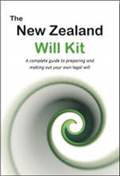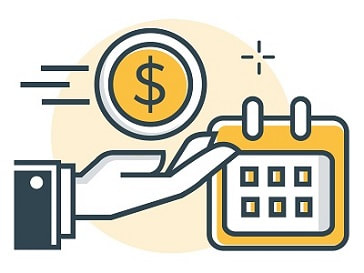Wills - The Definitive New Zealand Guide
Our guide covers why wills are important, what they cost and how to make one
Updated 19 July 2024
Summary of our Wills Guide
- There are many options - professional trustee companies, a local lawyer, a paid online service, a free DIY website will and even a bookshop will kit.
- It's worth shopping around and avoiding the temptation to pick the cheapest will service - the real cost is in the Executor fees. Where you save $100-200 now may cost thousands of dollars later.
- If a lawyer or professional trustee company is appointed to execute the will, they will charge on a time or estate value basis - the more they have to do the more they charge you and vice versa.
- Lawyers offer protection where DIY services do not - being explicitly clear in every detail is essential.
- You should be able to appoint anyone to be your will's executor. However, appointing an executor needs serious thought and it can be a big responsibility, including personal liability if they make a mistake. Because of the risks, we've prepared a special section on this.
- Be careful with some providers, who may insist on being appointed as an executor - this means they will charge fees when they administer the estate to your beneficiaries and cannot be replaced after your death.
- Using a lawyer or professional trustee company is a good idea if you have a complicated family situation - for example, second marriage, existing family trust and/or family business.
- An enduring power of attorney (appointing someone to handle your financial matters if you lose mental capacity) is increasingly important for New Zealanders, and we've outlined this separately to wills.
- Recommended starting point: This excellent tool indicates who might get what slice of your assets if you were to pass away right now without leaving a will.
Wills: Our Guide to Everything you Need to Know
Two things are certain, death and taxes. It may not be the best topic of conversation for a Saturday BBQ, but having a will simplifies life for those you care about. If you don't have one, your family and loved ones could be faced with otherwise unnecessary problems if you die owning a reasonable amount of assets.
Our guide outlines why you may need a will, how you can make a will, the costs involved and essential tips to make sure you have everything covered.
Guide Index
Warning: While we make every effort to ensure this guide is 100% accurate, the contents do not constitute legal advice for your specific needs. Any decision taken based on this guide is at your own risk and MoneyHub does not assume responsibility nor accept liability or any loss or damage that arises from acting on information contained in this guide.
Looking for information beyond wills? Our guides to Trusts and an Enduring Power of Attorney have you covered.
Our guide outlines why you may need a will, how you can make a will, the costs involved and essential tips to make sure you have everything covered.
Guide Index
Warning: While we make every effort to ensure this guide is 100% accurate, the contents do not constitute legal advice for your specific needs. Any decision taken based on this guide is at your own risk and MoneyHub does not assume responsibility nor accept liability or any loss or damage that arises from acting on information contained in this guide.
Looking for information beyond wills? Our guides to Trusts and an Enduring Power of Attorney have you covered.
Our View - The Best Ways to Write a Will
Our view is that the best place to start is either using a local lawyer, an online will service like Footprint or LawHawk, or a combination of both.
By using an online service such as Footprint or LawHawk, you have the benefit of considering your needs in detail without the hourly expense of a lawyer.
If you then feel like you need a lawyer, you can go from there. However, this can mean you establish a personal relationship when you may prefer to keep your affairs separate. If you do decide to contact a lawyer, the best approach is to email a few and specify what issues you want to focus on. You will then receive quotes for the work required.
Bonus Deals from Footprint, our guide sponsor:
Disclosure: Footprint sponsors this guide to promote their Wills product. We have no other relationship with Footprint. Additionally, we have no relationship with LawHawk or any local lawyer.
By using an online service such as Footprint or LawHawk, you have the benefit of considering your needs in detail without the hourly expense of a lawyer.
If you then feel like you need a lawyer, you can go from there. However, this can mean you establish a personal relationship when you may prefer to keep your affairs separate. If you do decide to contact a lawyer, the best approach is to email a few and specify what issues you want to focus on. You will then receive quotes for the work required.
Bonus Deals from Footprint, our guide sponsor:
- Footprint is offering a 15% discount on their Single Will package. Best of all, customers can take advantage of their service support via phone and email.
- Footprint offers a rewards program with its Will It package. New customers will receive $200 of rewards immediately, and then $100 for each year of loyalty as time goes on. You can read our review of Footprint here.
Disclosure: Footprint sponsors this guide to promote their Wills product. We have no other relationship with Footprint. Additionally, we have no relationship with LawHawk or any local lawyer.
Writing a Will - 9 Things to Know
Understand what the legal terminology meansWe have outlined and explained a number of the most common terms used in wills below:
So, to put this into a sentence - if you are a will maker, you have written a will for your estate which specifies your beneficiary(s) and your executor. Also, should one of your assets exceed $15,000, probate will be required (the probate procedure covers all assets, do you don't need to apply for probate on a per-asset basis). |
I don't have a will - do I need one?In short, yes. Not having a will complicates your affairs once you die. There are many reasons you may not have a will – cost concerns and/or unwillingness to embrace and plan for death. Not leaving a will is almost certain to leave behind problems for your family, so it’s important to take the time to draft a will irrespective of your age, financial position and marital status. Breaking through the fear barrier and arranging a will only have positive results for those you care about.
If you don’t have a will, your assets/estate will be distributed in accordance with a set formula under the Administration Act. Therefore what you intend may be not what the Act says, and people you would like to have left something to may find themselves excluded. A reader writes in: “My father died suddenly and didn’t have a will – this meant a lot of legal expenses and delays in everything and anything. I wrote my own will and it took an hour, a fraction of the time I've spent worrying about my Dad's estate after he died intestate” – Simon, Invercargill |
6 major reasons to get a will:Everyone's situation is different, but if at least one of the following applies to you, you might want to consider writing a will sooner rather than later:
|
What does a will actually do?When you write a will, you decide how you want your estate (assets) to be distributed.
Subject to any challenges, a will allows your executor to follow your instructions. In short, if you want to leave something to someone, make a will and it will happen. A will lets you specify the loved ones, friends and other parties you wish to leave something to. Your wishes will be carried out by the executor of your estate. Not having a will means that there is no obligation to carry out your intended plans for your assets. For example, if you want to be sure someone benefits who may not be obvious, only having a written Will makes that possible. Not having a will could lead to unexpected consequences for your loved ones. |
Naming of your executorsYour executor is the person/people who takes responsibility for your estate after your passing; this can also be a professional trustee company too.
Considering the appropriateness of your chosen executor is important. The appointment of a friend does mean your estate could be free of legal costs - but lawyers are often needed to help and assist the executor convert assets to beneficiary distributions. You can name a lawyer or trustee company as an executor. Many lawyers will tell you it's the will's beneficiaries who complain most about executor fees and associated legal costs. With the will maker dead and out of the picture, families can get upset about executor fees which directly reduce what they receive from the estate. |
Make executing your estate easy
Only you can decide who your estate goes to. Your estate includes everything you own at the moment you die; your house, other property, businesses, car, savings, shares and investments, life insurance, jewellery, pets, all debts and tax etc.
|
Providing for childrenIf you have young children, a will is the highest legal power you have to ensure they are looked after should you die. If you and your partner both die, a will is the only way to protect your children by appointing a guardian and setting aside money and/or other assets for their future.
Similar to the process of appointing your executor, make sure you ask for permission from your intended guardian. Looking after children is an enormous responsibility; an upfront agreement to be the guardian will avoid any issues later on. But, If you appoint someone inappropriate as your children's guardian, a family member may challenge it and the family court will either uphold or deny your will wishes. |
The Executor - Responsibilities and a Risk of Personal LiabilityIt's perfectly reasonable that Executors would want to help beneficiaries and distribute the proceeds from the estate as soon as possible after the will maker's death.
But this is risky - the estate may have claims against it which need to settled. Examples of such claims include family members under the Family Protection Act for further provision from the estate, and claims by people who believe the will maker promised that they would receive something on his or her death. If either finds themselves getting less than they expected, a challenge may be made. There are many other essential things an executor needs to consider, as we outline below: Six month wait for distributions What's really important is the fact that the Administration Act states that executors will NOT be LIABLE for distributing any part of the estate to the beneficiaries "if distributions are made six months after the grant of probate and if, at that time, the executors have not received notice of any claim affecting the estate". So what this means is that the beneficiaries may have to wait up to six months to receive what you have left them in your will. Creditors vs Claimants It's important not to confuse "creditors" with "claimants". Creditors are owed a debt by the estate and have up to six years from when a debt was incurred to file court proceedings. For this reason, Executors are obliged to check if any creditors exist before distributing funds. But the law helps protect the estate - the Trustee Act provides a procedure for protecting executors against unknown and endless claims by requiring an advertisement in a paper to be published in the area where potential creditors may reside, asking creditors to send details of their claims to the executors within the notice period specified in the notice. Executors can shorten the 6 month wait period Executors have the option to speed up the six month period, but it comes with risk; a popular legal option is to have the beneficiaries of the estate sign an indemnity stating that, if any claims arise, the beneficiaries will refund sufficient funds to settle the claims. This protects the Executor from having to personally cover any unplanned claims that the estate cannot cover. The real risk of personal liability for executors Many lawyers will tell you stories of cases where executors were ordered to cough up thousands of dollars from their own pockets. Such situations arise when the executor lost their statutory protection by distributing before they should have, and a claim on the will then came out of the woodwork after the estate had been fully paid out. With no money left in an estate, the claimant will chase the executor for what they believe they are entitled to. |
Enduring Power of Attorney ExplainedAn "Enduring Power of Attorney" is separate from a will, and it is designed to look after your affairs if you become unable to look after yourself or make decisions about your affairs. An Enduring Power of Attorney (EPA) is a legal document that authorises someone you nominate to make business, legal, and financial decisions on your behalf, allowing the person to pay your bills, sell your assets and generally look after your best interests financially. Having a EPA means there is no delay between the time you need someone to handle your affairs and the time they can act.
While a will covers your assets once you are dead, an EPA looks after your interests if you experience dementia or the loss of mental capacity. It is arguable that an EPA is far more important for a person's well being than a will, as they could suffer directly from the absence of a EPA. Looking for information beyond wills? Our guides to Trusts and an Enduring Power of Attorney have you covered. |
Writing a Will - Your Options Explained
You have three options when it comes to writing a will. The first is the traditional and most popular method - contacting a lawyer and paying them to complete your will and ensure it is legitimate. The second option is using a professional trustee company who specialise in wills. The third option is the 'do it yourself' approach, where you fill out a standard template or form online which automatically generates a will. Both options have their pros and cons, which we outline in detail below.
Essential Specifics of ANY Will
When writing your will, you must make the following items clear to avoid any problems later on.
Essential Specifics of ANY Will
When writing your will, you must make the following items clear to avoid any problems later on.
- Be clear that it’s your last will and your new will revokes all previous wills
- Be specific on how you want your estate distributed
- Clearly name your executor(s) and get their approval in advance
- Name the legal guardians of children under 18 if you and your partner are dead
- Specify any requests such as funeral arrangements
Our View - The Best Ways to Write a Will
Our view is that the best place to start is either using a local lawyer, an online will service like Footprint or LawHawk, or a combination of both.
By using an online service such as Footprint or LawHawk , you have the benefit of considering your needs in detail without the hourly expense of a lawyer.
If you then feel like you need a lawyer, you can go from there. However, this can mean you establish a personal relationship when you may prefer to keep your affairs separate. If you do decide to contact a lawyer, the best approach is to email a few and specify what issues you want to focus on. You will then receive quotes for the work required.
Bonus Deals from Footprint, our guide sponsor:
Disclosure: Footprint sponsors this guide to promote their Wills product. We have no other relationship with Footprint. Additionally, we have no relationship with LawHawk or any local lawyer.
By using an online service such as Footprint or LawHawk , you have the benefit of considering your needs in detail without the hourly expense of a lawyer.
If you then feel like you need a lawyer, you can go from there. However, this can mean you establish a personal relationship when you may prefer to keep your affairs separate. If you do decide to contact a lawyer, the best approach is to email a few and specify what issues you want to focus on. You will then receive quotes for the work required.
Bonus Deals from Footprint, our guide sponsor:
- Footprint is offering a 15% discount on their Single Will package. Best of all, customers can take advantage of their service support via phone and email.
- Footprint offers a rewards program with its Will It package. New customers will receive $200 of rewards immediately, and then $100 for each year of loyalty as time goes on. You can read our review of Footprint here.
Disclosure: Footprint sponsors this guide to promote their Wills product. We have no other relationship with Footprint. Additionally, we have no relationship with LawHawk or any local lawyer.
Option 1: A local lawyerHave an existing lawyer? Great - we suggest you talk to them about writing a will.
Don't have a lawyer? No problem. Follow our steps to pick the right one for your situation.
Pros and Cons of Hiring a Lawyer When Writing a Will: Pros:
|
Option 2: Professional Trustee CompanyIn New Zealand, two major companies dominate the market - Perpetual Guardian and Public Trust.
How it works Professional trustee companies offer will making services similar to that of a lawyer - a representative of the company meets with you, establishes your background and you will work together to complete the will to represent your intentions. The difference is that these companies are specialists in wills and estate planning, and that they have representation and/or branches all over New Zealand. Pros and Cons of a Professional Trustee Company: Pros:
Cons:
|
Professional Trustee Companies - Current Options
Perpetual Guardian
What it offers: Perpetual Guardian offers an in-person will making service, for around $200
What you get: You get a complete will on paper after your consultation, and it will be in digital form if you use their "WILLplus" service.
Access: If you use their "WILLplus" service, you are permitted to access the will online and make annual updates.
Our Thoughts: The company has extensive legal experience, so if your family situation is complicated they can provide guidance. You can also appoint your preferred executor(s,) and the service is price-competitive with other providers.
Money Saving Tip: You may be able to save the upfront fee - we noted that Perpetual Guardian was offering an "April Free Wills Campaign" when we first published this guide, and that this was an annual promotion.
Link: Perpetual Guardian Wills
What you get: You get a complete will on paper after your consultation, and it will be in digital form if you use their "WILLplus" service.
Access: If you use their "WILLplus" service, you are permitted to access the will online and make annual updates.
Our Thoughts: The company has extensive legal experience, so if your family situation is complicated they can provide guidance. You can also appoint your preferred executor(s,) and the service is price-competitive with other providers.
Money Saving Tip: You may be able to save the upfront fee - we noted that Perpetual Guardian was offering an "April Free Wills Campaign" when we first published this guide, and that this was an annual promotion.
Link: Perpetual Guardian Wills
Public Trust
What it offers: Public Trust offers an in-person will making service, for around $300
What you get: You get a complete will, but it's important to know that any subsequent updates are charged at $210+ GST and possibly more if added work is required.
Access: You receive your will in paper form. Public Trust will also keep a copy.
Our Thoughts: The company has extensive legal experience, so if your family situation is complicated they can provide guidance. It is essential to check you can appoint your preferred executors. Overall, the service is price competitive with other providers.
Link: Public Trust Wills
What you get: You get a complete will, but it's important to know that any subsequent updates are charged at $210+ GST and possibly more if added work is required.
Access: You receive your will in paper form. Public Trust will also keep a copy.
Our Thoughts: The company has extensive legal experience, so if your family situation is complicated they can provide guidance. It is essential to check you can appoint your preferred executors. Overall, the service is price competitive with other providers.
Link: Public Trust Wills
Option 3: DIY WillsGenerally, DIY wills are suitable for simple family situations. If you have a blended family (e.g. are remarried, have step-children), are a business-owner or farm-owner, have family issues you want to allow for (i.e. a relative you want to exclude) and/or have an existing family trust, DIY wills are probably not for you. But if you are a simple person with simple needs, we’ve listed the current DIY wills on offer below.
It's worth noting that New Zealand lawyers argue that DIY wills are high risk, but our view is that if care is taken they are equally legitimate to any will made in a lawyer’s office. Before the internet, bookshops sold (and still do!) DIY will kits, which we also outline below. How it works With a DIY will, you fill out details online and download it as a file or receive it in an email. Risks
What do I need to consider for a DIY will? There are some necessary legal requirements that are essential for a DIY to be valid:
And, be careful in every detail:
For anything but simple situations, you should ask a lawyer to check your DIY will. They will ensure it is accurate and valid meaning there is less chance of it being contested when you die. Will contesting costs a lot and is unpleasant for everyone (other than lawyers). Pros and Cons of a DIY Will: Pros:
|
DIY Wills - Current Options
With online wills, you will usually be asked a series of questions to create your will, which will then be sent to a lawyer to check it. You may be given an opportunity to ask questions, and the lawyer will suggest any changes before being sent back to you.
But, it's critical to note that only wills prepared by a lawyer or professional trustee company are protected by legal indemnity, meaning that if there has been a mistake and the lawyer or company is at fault, you have rights to compensation. The providers in the list below are merely a list of options currently available - we have not reviewed their service, and their inclusion is by no means a recommendation.
Disclaimer: Unless otherwise stated, all of the options below are online will services.
But, it's critical to note that only wills prepared by a lawyer or professional trustee company are protected by legal indemnity, meaning that if there has been a mistake and the lawyer or company is at fault, you have rights to compensation. The providers in the list below are merely a list of options currently available - we have not reviewed their service, and their inclusion is by no means a recommendation.
Disclaimer: Unless otherwise stated, all of the options below are online will services.
LawHawk
- What it offers and what you get: A will for a fixed fee of $59.90. There is extensive video guidance to tackle standard and non-standard inclusions in your will.
- Access: You receive a finalised will to print and/or file
- What you get: The service includes a completed will, 7-day money back guarantee if you're not happy, and free contact with their team.
- Our Thoughts: LawHawk is upfront about what the online will service covers and what it doesn't. For this reason it is good for a first will and depending on your family situation it may also be covered - their website has a list of what gifting options are available.
- Link: LawHawk
- What it offers and what you get: Footprint offers three will services for an annual or one-off fee. If you wish to write a will for a fixed price, Footprint outlines their service here.
- Access and what you get: You receive a finalised will to print and/or file, as well as other features, depending on the Footprint service you purchase.
- Our Thoughts: Footprint is the first service of its kind in New Zealand. We have reviewed it extensively here.
- Link: Footprint
Agreeable
- What it offers and what you get: Agreeable offers online wills for $89, alongside their specialty agreements such as prenups and separation agreements.
- Access and what you get: Complete a short questionnaire, and you'll be emailed your will automatically as a Word document that you can edit yourself, or with help from their team.
- Our Thoughts: Agreeable is a popular online legal document provider with a growing range of legal document services; you can read our review here. Agreeable is backed by expert lawyers across New Zealand.
- Link: Agreeable
Bookshop Will Kits (Offline Option)
- What they offer: If you’d like to sit down and think about it without a computer while avoiding a lawyer’s office, you can do it the old school way and buy a will kit. Many are available.
- What you get: These kits walk you through the process of identifying possible beneficiaries, establishing an executor and include perforated blank wills to complete. You can also buy them online
- Access: Bookshops such as Paper Plus sell them for around $20, or you can buy them directly (see links below). You'll fill out the will by yourself.
- Our Thoughts: The service is good for a first will but may not be suitable if you have a complicated family situation.
- Link: nzwillkit.com and Paper Plus
Disclaimer: MoneyHub is not a lawyer, so we can’t advise you as to what will option or provider to pick if you proceed with writing a will. If you are at all concerned or confused about a particular issue when creating a will, we suggest you raise it with a lawyer who will be able to advise accordingly.
Our View - The Best Ways to Write a Will
Our view is that the best place to start is either using a local lawyer, an online will service like Footprint or LawHawk, or a combination of both.
By using an online service such as Footprint or LawHawk , you have the benefit of considering your needs in detail without the hourly expense of a lawyer.
If you then feel like you need a lawyer, you can go from there. However, this can mean you establish a personal relationship when you may prefer to keep your affairs separate. If you do decide to contact a lawyer, the best approach is to email a few and specify what issues you want to focus on. You will then receive quotes for the work required.
Bonus Deals from Footprint, our guide sponsor:
Disclosure: Footprint sponsors this guide to promote their Wills product. We have no other relationship with Footprint. Additionally, we have no relationship with LawHawk or any local lawyer.
By using an online service such as Footprint or LawHawk , you have the benefit of considering your needs in detail without the hourly expense of a lawyer.
If you then feel like you need a lawyer, you can go from there. However, this can mean you establish a personal relationship when you may prefer to keep your affairs separate. If you do decide to contact a lawyer, the best approach is to email a few and specify what issues you want to focus on. You will then receive quotes for the work required.
Bonus Deals from Footprint, our guide sponsor:
- Footprint is offering a 15% discount on their Single Will package. Best of all, customers can take advantage of their service support via phone and email.
- Footprint offers a rewards program with its Will It package. New customers will receive $200 of rewards immediately, and then $100 for each year of loyalty as time goes on. You can read our review of Footprint here.
Disclosure: Footprint sponsors this guide to promote their Wills product. We have no other relationship with Footprint. Additionally, we have no relationship with LawHawk or any local lawyer.
Wills - Frequently Asked Questions
To help you understand the small details in will-writing and save you time and money, we've included many popular questions clients ask their lawyers. If you would like to see additional questions covered, please get in touch with our research team.
What are Estate Executor costs?A professional executor charge a fee which is paid out of your estate to cover the distribution of assets to your beneficiaries. The work they do includes:
There are two ways of paying for this:
|
Do debts die with you?The answer is NO. They may be written off, but they don’t die with you. Debts such as credit card, loans or mortgage balances will be paid from your estate BEFORE your beneficiaries get any money. However, if you die with no assets, the debts will be written off.
Simple Examples: Person A - Debts $150,000, no assets. Person A has nothing to leave, and no one has to take the debts, so the debts are written off. Person B - Debts $100,000, assets of a $400,000 home. Person B’s estate has a debt of $100,000 which needs to be paid, which will be deducted from the total estate. You beneficiary can choose to pay off the debts personally and take possession of the house, or it will be sold to pay the debts and then distribute the remainder to the beneficiary. Person C - Debts $400,000, assets of a $350,000 home Person C’s beneficiary could choose to take on the debts to keep the home or choose not to take the home, thereby allowing the house to be sold to pay the debts. |
Where should I keep a will?If anything happens to your will, or if your executor doesn’t know where to find it, it’s the same as not having a will at all. To avoid that problem, you need to decide where to keep your will, and then inform your executor as to where it is.
Never keep your will in your bank's safety deposit box – the bank cannot open the box until it receives probate (permission of the executor to begin administering your affairs), and probate cannot be granted without a will, meaning a horrible catch 21 situation. Your will is not to be locked away in a vault, but instead accessible without complication. Never attach other documents to your will with staples, paperclips or anything else – doing so will leave a mark on the will and raise questions about whether the will is missing a section, an amendment or an appendix. This will drag out the job of the executor, who may need to contact witnesses to establish the authenticity of the will. A will must be a numbered document without any additional papers. The best place to keep a will is the one that is the safest and most appropriate for your needs. Options:
|
What is the Executor responsible for?In short, quite a lot - the executor steps in upon the will maker's death and ensures all the wishes in the will are carried out. This includes the funeral arrangements as well as selling and/or distributing property and assets. The role of an executor is ultimately taking the place of the will maker after death by undertaking or overseeing the transfer of the estate to the specified beneficiaries. This guide offers full details as to the role and responsibilities of an executor.
|
How should I decide on the Executor, and can I select more than one person?It's very common in New Zealand to name a family member, especially a spouse or child, as executor. But if you don't have an obvious family member, you may want to ask a trusted friend.
Selecting an Executor - Top tips:
Executor Fees Most family members and close friends (especially if they are a beneficiary) serve for free, but using a professional such as a lawyer will cost your estate. The fee is either a percentage of the estate's value and/or an hourly charge paid out of the estate upon death. |
What happens if an executor dies?If your nominated executor dies before you do, you will need to change your will to name a new executor. In a situation where the executor dies shortly after the will maker, the executor's executor will assume the same role for both people who passed away. But there may be hold ups if probate was not obtained.
For these reasons, it can be a good idea to select more than one executor to manage an estate, and a popular option is to pick a succession of executors as we explained above - i.e. first your spouse, followed by daughter, followed by grandson etc.). |
What does "probate" mean for my will and estate?Upon death, your estate's executor will need to apply to the High Court for it to approve the will as valid and to approve their power to deal with the deceased’s estate in the role of "executor". This process is called getting “probate” for the will. The process is relatively straight-forward, but it does involve legal documents, so a lawyer may be required.
But, Executors are personally liable Under the Administration Act, executors must wait six months from probate before distributing; otherwise they are personally liable for any errors. A will can be distributed before the 6 month period ends, but the executor will need to seek an indemnity from the beneficiaries as we outline above. And remember, a will can be challenged in two ways - firstly by way of its form, i.e. which version of the will is the right one. And then again in the substance where claimants believe they're getting less than what was promised to them in person. For all these reasons, it's really important to be very specific when writing a will to ensure you consider everyone around you and their interests. |
What happens if I don't have a will when I die?If you die without a will, you are said to have died "intestate". When this happens, the law steps in to say who is entitled to share the estate under Section 77 of the Administration Act 1969. Depending on your family situation, your estate will pass to your partner, children, and/or the state. This guide sets out precisely what will happen with each family situation.
If you want to be specific about who gets what, a will is the only way to make your intentions clear. |
If I have no assets, do I need a will?The answer in most cases is "yes". Even if you don't think you own anything, you probably do have some form of assets. And if you die without having a will, you leave your loved ones open to a lot of uncertainty and risk. If you don't have a will, there will be no certainty on how to make arrangements and deal with all of your possessions when you die. You also risk leaving loved ones in debt and/or children or pets without care. For these reasons writing a will can be a good idea to give certainty and clarity to your loved ones upon death.
Remember, you may own more than you think. Some employers offer life insurance policies which pay out on death, and these can be significant. KiwiSaver balances can also be sizable. Having a will ultimately lets you decide on who gets what. |
Writing a Will: Conclusion and Next Steps
- There's no shortage of choice when it comes to writing a will. It's our view that using a lawyer/law firm or professional trustee company over a free option or third party service is going to give you the best service.
- From our research, a straightforward will should not cost more than around $350 and will almost always be less than $500.
- Using a lawyer minimises the problems arising from getting a will wrong. A lawyer will take the time to sit down and get all of your background details - this can raise any red flags or special considerations you need to make.
- Generally, wills are straightforward and will only get complicated if there are previous relationships or complex trust/company structures to consider.
Looking for information beyond wills? Our guides to Trusts and an Enduring Power of Attorney have you covered.
Our View - The Best Ways to Write a Will
Our view is that the best place to start is either using a local lawyer, an online will service like Footprint or LawHawk, or a combination of both.
By using an online service such as Footprint or LawHawk , you have the benefit of considering your needs in detail without the hourly expense of a lawyer.
If you then feel like you need a lawyer, you can go from there. However, this can mean you establish a personal relationship when you may prefer to keep your affairs separate. If you do decide to contact a lawyer, the best approach is to email a few and specify what issues you want to focus on. You will then receive quotes for the work required.
Bonus Deals from Footprint, our guide sponsor:
Disclosure: Footprint sponsors this guide to promote their Wills product. We have no other relationship with Footprint. Additionally, we have no relationship with LawHawk or any local lawyer.
By using an online service such as Footprint or LawHawk , you have the benefit of considering your needs in detail without the hourly expense of a lawyer.
If you then feel like you need a lawyer, you can go from there. However, this can mean you establish a personal relationship when you may prefer to keep your affairs separate. If you do decide to contact a lawyer, the best approach is to email a few and specify what issues you want to focus on. You will then receive quotes for the work required.
Bonus Deals from Footprint, our guide sponsor:
- Footprint is offering a 15% discount on their Single Will package. Best of all, customers can take advantage of their service support via phone and email.
- Footprint offers a rewards program with its Will It package. New customers will receive $200 of rewards immediately, and then $100 for each year of loyalty as time goes on. You can read our review of Footprint here.
Disclosure: Footprint sponsors this guide to promote their Wills product. We have no other relationship with Footprint. Additionally, we have no relationship with LawHawk or any local lawyer.
If you have experiences you would like to share and/or tips you think we should include, please contact our team.
Related guides:
Related guides:



































